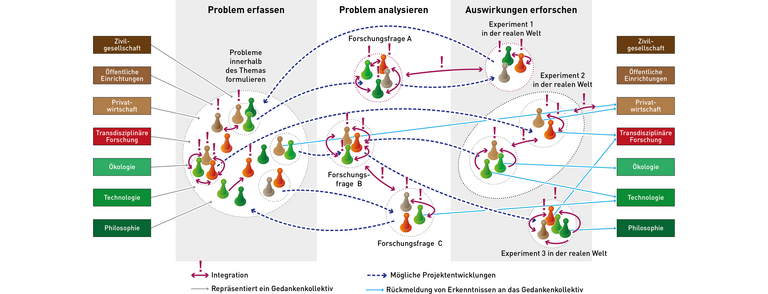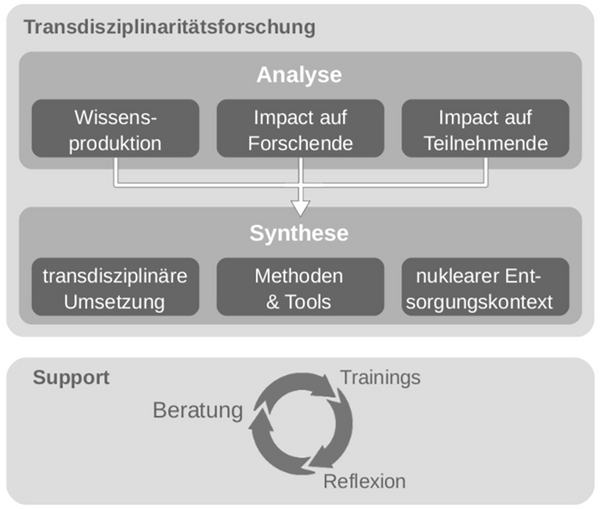Program
Programm der Transdisziplinaritätsforschung
Transdisciplinarity research is divided on the one hand into the study of collaboration, which also includes regular reflection, and on the other hand into support for transdisciplinary foundations. Strictly speaking, we do not count the support as transdisciplinarity research, since no research is done here. This includes training on the organization of collaboration and consultation on transdisciplinary topics.
Transdisciplinarity research consists of an analysis (with regular reflection) and a synthesis based on it. The aim of the synthesis is to work out conclusions for the solution of the disposal problem. The analysis includes three fields of investigation:
- "Knowledge production" aims to clarify what new knowledge is created through collaboration between researchers and stakeholders in society (= transdisciplinary research).
- "Impact on researchers" examines the effects of the collaboration on the researchers as well as the changes in the research work.
- "Impact on participants" examines the impact of the collaboration on the representatives of society (e.g., changes in views, values, perceptions, requirements for disposal).
The subsequent synthesis focuses on three areas:
- "transdisciplinary implementation", which examines the procedure in the project with regard to transdisciplinary characteristics and evaluates the benefits and, if applicable, difficulties of including representatives from society.
- In "methods and tools", the forms of collaboration (e.g. type of workshop, focus groups, etc.) and tools used (e.g. visualizations, digital techniques, creativity techniques) are assessed in terms of their suitability.
- "Nuclear waste management context" includes the conclusions that can be drawn for problem solving of waste management (taking into account the current public discussion).

